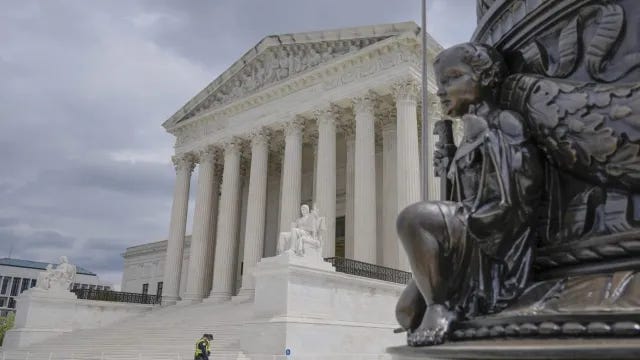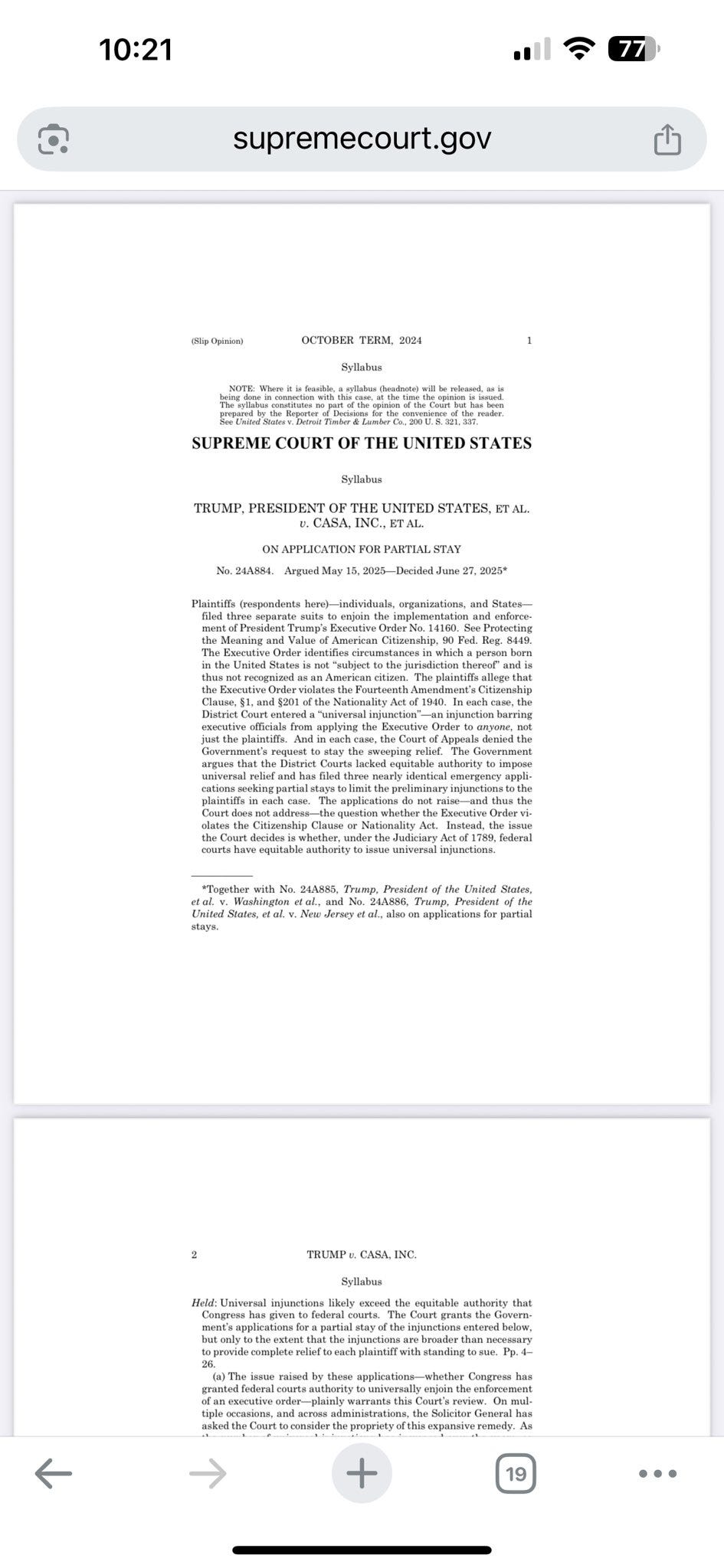SCOTUS Limits Nationwide Injunctions
The Court noted that the applicant had filed three nearly identical emergency applications seeking to limit the preliminary injunctions.
Today, the Supreme Court of the United States issued a significant ruling in the case of Trump v. CASA by addressing the scope and limitations of nationwide injunctions. This opinion, stemming from an application for a partial stay of a district court’s injunction related to an executive order, marks a notable shift in judicial practice.
The Court granted a partial stay, indicating that the district court’s initial nationwide injunction exceeded its equitable authority, thereby limiting its broad application. The syllabus reveals that the injunction had been issued to halt the enforcement of an executive order, but the Supreme Court intervened to restrict its scope to the named plaintiffs rather than allowing it to affect the entire nation.
The legal basis for this decision draws on the Judiciary Act of 1789 and the Court’s historical jurisdiction, emphasizing that injunctions must align with traditional equitable principles. The ruling suggests a rejection of the notion that a single district judge can unilaterally suspend an executive order nationwide, particularly in matters of national significance where Congress has not explicitly authorized such broad relief.
The Court noted that the applicant had filed three nearly identical emergency applications seeking to limit the preliminary injunctions, underscoring a preference for targeted relief tailored to the specific parties involved rather than universal remedies. This decision carries important implications for the future use of nationwide injunctions by lower courts. By staying the injunction to the extent it exceeded equitable authority, the Supreme Court appears to be advocating for a more restrained approach, where such measures are exceptional and justified by specific circumstances.
The syllabus further invites the Court to consider the propriety of expansive remedies in future cases, suggesting that while nationwide injunctions are now limited, they are not entirely foreclosed. This ruling reflects a careful balance between judicial oversight and the executive branch’s authority, reinforcing the need for judicial restraint in issuing broad, nationwide relief.
BARRETT, J., delivered the opinion of the Court, in which ROBERTS, C. J., and THOMAS, ALITO, GORSUCH, and KAVANAUGH, JJ., joined. THOMAS, J., filed a concurring opinion, in which GORSUCH, J., joined. ALITO, J., filed a concurring opinion, in which THOMAS, J., joined. KAVANAUGH, J., filed a concurring opinion. SOTOMAYOR, J., filed a dissenting opinion, in which KAGAN and JACKSON, JJ., joined. JACKSON, J., filed a dissenting opinion.



